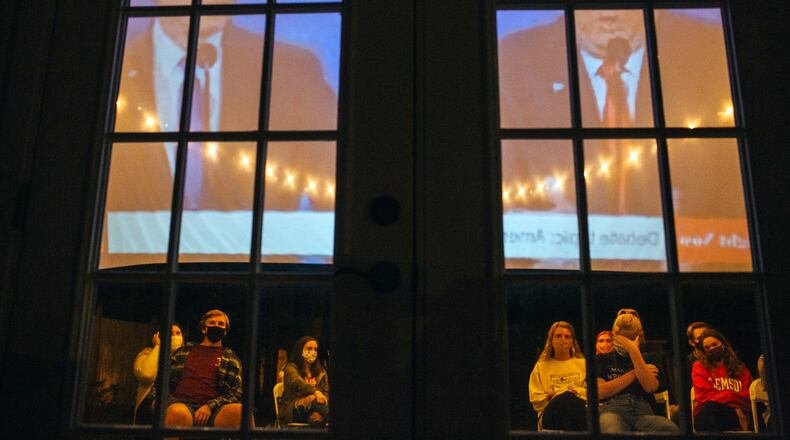As they cast their ballots for president, voters have many big issues on their minds. Unfortunately, education doesn’t appear to be among them.
A Pew Research Center poll two weeks ago found the most important issues to voters are the economy, health care, Supreme Court appointments, the coronavirus, violent crime, foreign policy, guns, racial inequality and immigration.
The absence of education on the list could mean Americans understand public schools are largely funded and controlled at the state and local level and not from Washington or the White House. It could also reflect the sentiment that education is a private good rather than public one, and thus the responsibility rightfully belongs on families, rather than communities.
Neither candidate has talked much about schools in campaign stops in these last few days before Tuesday’s election. Nor did education figure much in the presidential debates. Still, voters can discern stark differences in Republican President Donald Trump and Democratic challenger Joe Biden.
While in office, Trump essentially ignored public education except to criticize it and call for more voucher and choice programs. In June, he said. “We’re fighting for school choice, which really is the civil rights of all time in this country.”
In his push to dismantle what he deems the “government-run education monopoly” and harness tax dollars to provide parents with broader choices, Trump sees no need for any safeguards to make sure they are better choices. According to Trump and his Education Secretary Betsy DeVos, tax dollars should flow to private schools without any oversight beyond the parent marketplace.
During the pandemic, Trump’s main message to public schools was to reopen fast so parents could get back to work. The White House has attempted to predicate new pandemic relief funds for education on whether schools offer in-person classes.
So, what could we expect from a second Trump term in education?
Certainly, we would see a continued push to privatize schools given Trump’s contention, “There’s no failed policy more in need of urgent change than our government-run education monopoly.”
Still, the Trump administration has been unable to prod Congress to pass its $5 billion tax credit that gives individuals and corporations a dollar-for-dollar tax credit for donating to scholarship programs, such as the Georgia Private School Tax Credit, that help families defray private-school tuition. A second term could see a renewed effort.
As part of his embrace of school choice, Trump endorses charter schools, which are public schools accorded independence and flexibility in exchange for contractual promises of improved performance. He’s accused Biden of opposing them, saying, “He wants to end school choice, no school choice, and abolish charter schools.”
Biden says he supports charter schools as long as there is accountability. “If you are going to have a charter school, it cannot come at the expense of the public school. Any charter school has to be accountable to the same standards, the same requirements and the same transparency as the public schools in that district are accountable to," said Biden during a recent interview with the National Education Association.
Biden is far more congenial toward educators than Trump, who has vilified public school teachers and teacher unions as defenders of the status quo. Donald Trump Jr., introducing his father at a campaign event last year in El Paso, Texas, famously derided “loser teachers."
Biden has committed to an education secretary with teaching experience, a dig at DeVos, who never attended or worked in public schools or sent her children to them. “This is going to be a teacher-oriented Department of Education, and it’s not going to come from the top down — it’s going to come from the teachers up,” he said.
Biden has pledged to raise salaries of teachers in schools serving poor and minority students by tripling federal Title 1 funding. His proposed caregiving and education plan, which is estimated to cost $775 billion over 10 years, calls for universal pre-K for 3- and 4-year-olds.
No matter which candidate wins the White House, he will be faced with urgent pleas from schools for more federal funding in response to COVID-19. The pandemic has financially depleted school districts, many of which will have to eliminate programs and lay off staff due to expected state-level budget cuts. Hardest hit in Georgia will be districts in low-wealth communities that rely more on state dollars than local property taxes. An infusion of federal dollars would help struggling districts in Georgia and elsewhere, but whether and how that money comes and what strings are attached will depend on who wins Tuesday.
About the Author
The Latest
Featured



